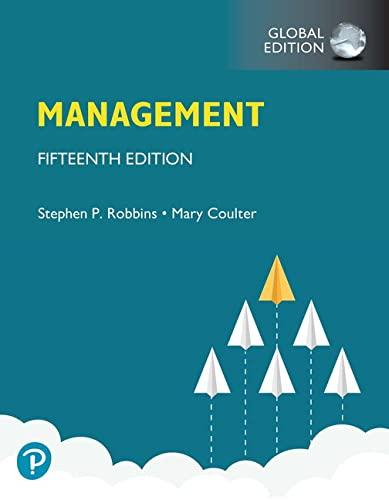Founded in 1919, Tesco has grown from a market-stall in the East End of London into the
Question:
Founded in 1919, Tesco has grown from a market-stall in the East End of London into the largest supermarket in the UK by market share, and one of the largest globally in just under a century. In 2018–19, Tesco boasted group sales of £56.9 billion.
At the end 2014, three weeks into his role as the CEO, Dave Lewis sent an email to Tesco’s employees saying that the organization’s culture had to change, focusing more on its customers and on being open, honest, and transparent. Most other CEOS might have waited more than three weeks before recommending such sweeping changes, especially for something as significant as the organizational culture. So why did Lewis make such a dramatic announcement? At the end of September 2014, with significant issues, related to the drive for growth and positive market results, being brought to light by a whistle-blower, Tesco announced that it had overstated its midyear profits by £250 million, later revising this to £263 million.
The issues surrounding this financial scandal were twofold: To improve its financial position, Tesco delayed payments to some of its suppliers and included payments from suppliers as part of its profit. Its announcement resulted in a 12 percent fall in the share price, wiping £2 billion off the company’s market value. In addition, both the Grocery Code Adjudicator (an independent body that oversees the relationship between suppliers and supermarkets) and UK’s Serious Fraud Office (SFO) announced that they would be carrying out an investigation into the matter.
Analyzing company documents from this period indicates that such activity is not aligned to the organizational culture. In 2013, Tesco’s former CEO Philip Clarke stated that the company should do all it can to earn stakeholder loyalty and trust. In fact, the 2013 annual report identified poor relations with suppliers as a risk and reaffirmed Tesco’s aim to comply with the Groceries Supply Code of Practice. Despite this, building good relationships was replaced by a drive to meet financial targets and maintain share value. In January 2016, the Grocery Code Adjudicator’s report didn’t make for a pleasant read for Tesco management. Evidence was found of internal emails suggesting that employees not make payments to suppliers before a certain date to temporarily improve margins and ensure that Tesco was not seen as underperforming.
The report also uncovered that some payments were delayed by nearly two years, and, in some cases, the supplier simply gave up asking.
In 2014, Tesco agreed to pay £129 million penalty after a series of investigations into the scandal. While building a new culture of trust and transparency may take time, Tesco has improved its communication channels with suppliers, a majority of whom say they now have a better relationship with Tesco than they did previously.
Five years after the 2014 scandal, the new reforms under Dave Lewis may have paid off. The 2018–19 results showed that operating profits increased by 34 percent while the group sales rose 11.5 percent, beating forecasts for the year.25
DISCUSSION QUESTION
3-1. Describe Tesco’s culture under the old management and Dave Lewis’ response to making a cultural change.
3-2. Which stakeholder groups are affected by the scandal discussed in the case?
3-3. How is the email sent to staff members linked to Dave Lewis’ view that the organization’s culture requires change?
3-4. Imagine you are looking to join Tesco. How would Tesco’s organizational story affect your decision? Consider both the scandal and how it was managed.
Step by Step Answer:






